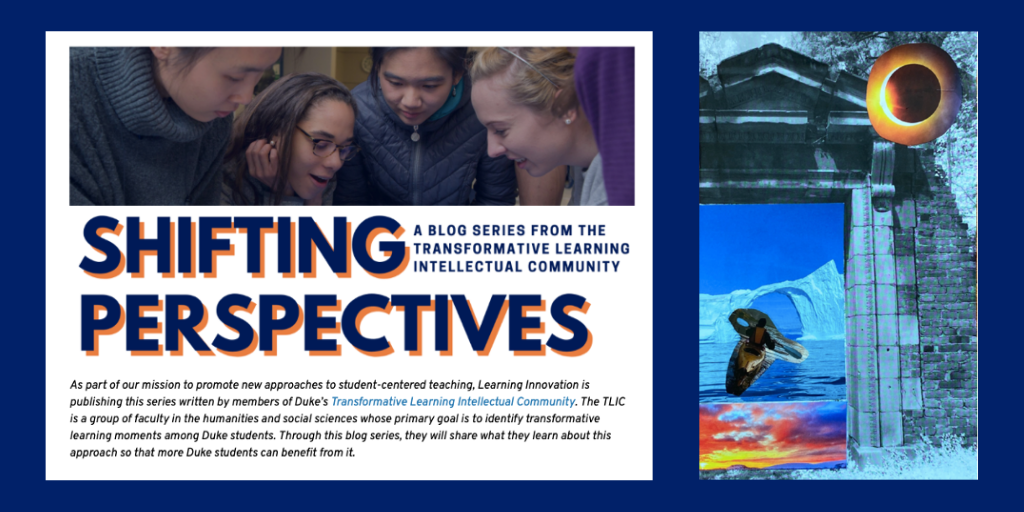
New Faculty Collaborations Flourish in a Challenging Year
Last January, ten groups of Duke faculty looked forward to beginning work on their 2020 Intellectual Community Planning Grants (ICPG). The COVID-19 pandemic interfered with their plans, but the groups succeeded in making strides and will continue to pursue their goals this year. Here are brief updates.
Transformative Learning: A Shared Intellectual Interest across the University
Cori Crane (lead), Deb Reisinger (lead), Joan Clifford (lead), Jennifer Ahern-Dodson, Alessandra Dinin, Jennifer Hill, David Malone, Liliana Paredes, Melissa Simmermeyer

This group’s aim was to explore transformative learning in undergraduate education in the members’ disciplines and across units. Members met monthly to discuss selected readings, including Patricia Cranton’s book “Understanding and Promoting Transformative Learning: A Guide to Theory and Practice.” Three meetings were held in person before the pandemic caused the remainder to take place virtually. For two of the meetings, outside speakers were invited to share their scholarship. In February, Dr. Stacey Johnson (Vanderbilt) spoke on perspective transformation among language learners of minoritized communities and gave a keynote at the Duke Language Symposium. In October, Dr. Richard Kiely (Cornell) met with the group twice and gave a public talk.
Inspired by Cranton’s discussion of arts-based activities as stimulus for reflection, members participated in a summer workshop by the Art Therapy Institute of NC. The group also began a blog series, “Shifting Perspectives,” and posted an Introduction, When Teachers Are Learners and Reclaiming and Reframing the Disrupted Year of Learning.
Bridging Social Determinants of Health with Clinical Extensions of Care for Vulnerable Populations
Donald H. Taylor (lead), Ebony Boulware, Nadine Barrett, Carolyn Barnes, Rosa Guarda-Gonzalez
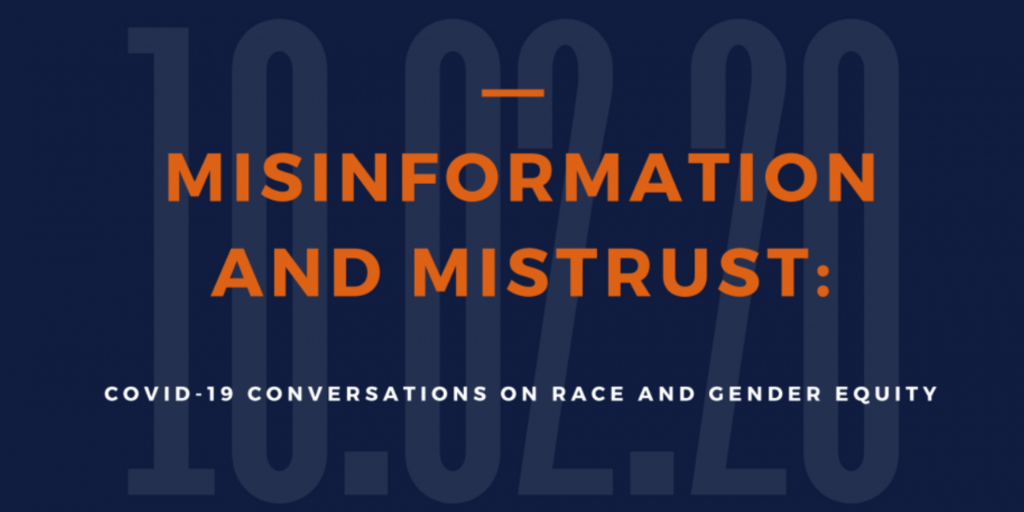
ICPG funds supported two virtual symposia to facilitate discourse around the social determinants of health and key issues to bridge with community partners.
A research symposium, A Call to Action: Identifying Next Steps to Address Biomedical, Health Care, and Social Drivers of COVID-19 Disparities, attracted 1,296 attendees and provided a venue for discussion among a mix of faculty from the School of Medicine, Clinical and Translational Science Institute (CTSI) and the social sciences. The second symposium, Misinformation and Mistrust: COVID-19 Conversations on Race and Gender Equity, engaged 325 participants.
The group’s symposia planning led to a U54 supplement to an NIH grant that was submitted through a shared vision of a project on adequate COVID testing in key areas of underserved populations.
Human Rights Futures
James Chappel (lead), Kathi Weeks, Robin Kirk, Adam Rosenblatt, Liliana Paredes, Marion Quirici, Jen Ansley, Emily Stewart
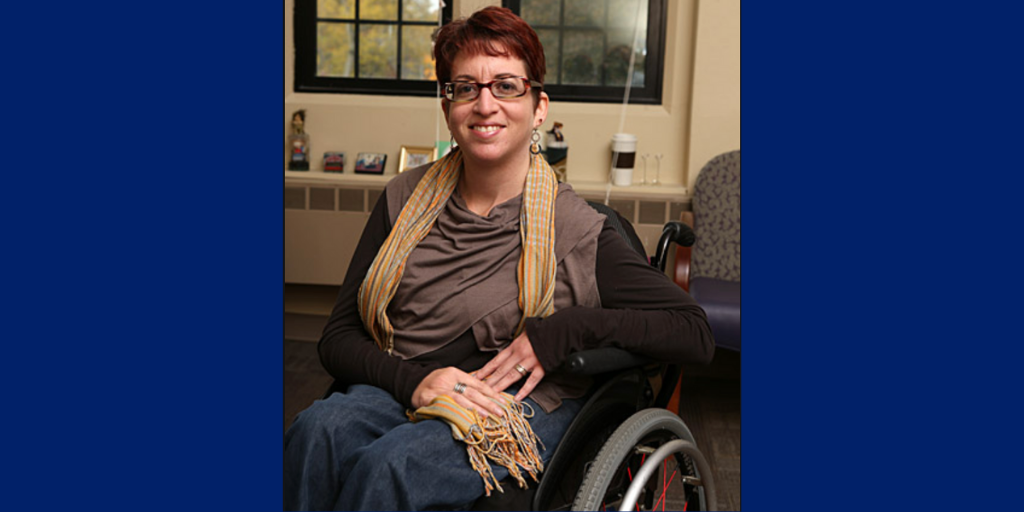
To begin thinking about the future of the Duke Human Rights Center (DHRC), this group held numerous meetings with graduate students, undergraduates, and faculty members who are interested in this topic. They came up with ideas for house courses and other initiatives that ended up being stalled due to the pandemic, but the discussions helped inform their vision of how to proceed.
As the DHRC deepens its collaboration with the Health Humanities Lab and the Disability and Access Initiative, ICPG funds will support a speaker and two workshops for students about disability, human rights and the university in Spring 2021. The grant also gave members some intellectual space to imagine the parameters of a FOCUS cluster, Envisioning Human Rights, and allowed for Robin Kirk to bring in guest speakers and facilitators to her course on fiction, futurism and human rights.
Housing and Health: A Multisector Community-driven Approach to Achieving Health Equity
Donna J. Biederman (lead), Rosa Gonzalez-Guarda, Elizabeth Shapiro-Garza, Daniel Richter, Jennifer (Kate) Hoffman, Don Bradley, Donald H. Taylor, Lorraine C. Taylor, Ashanti Brown
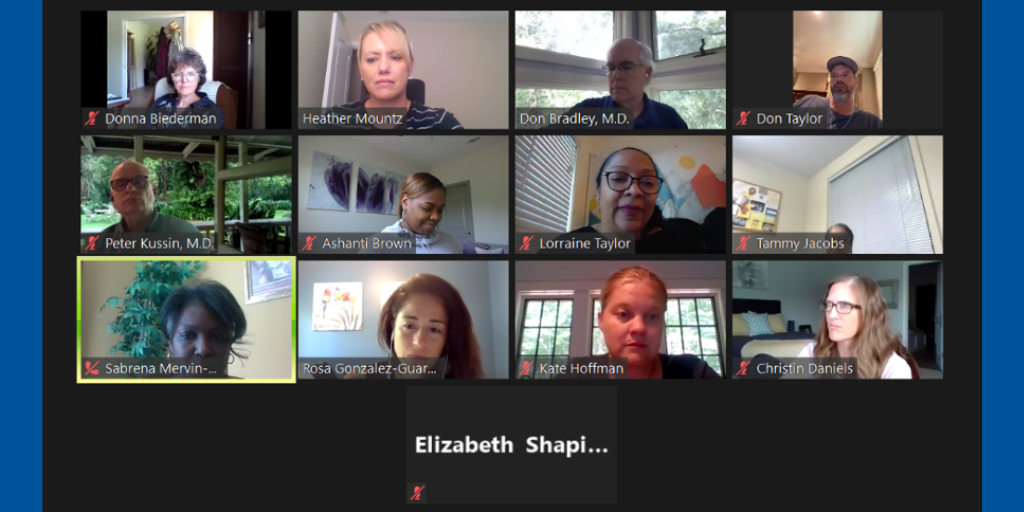
The group was able to hold two planning meetings with administrators from the Durham Housing Authority (DHA) in July and November. Participants agreed that a more strategic approach to research involving DHA would be needed before engaging residents. The pandemic also caused scheduling difficulties with the group’s second community partner, El Centro Hispano. The group’s current plan is to give a presentation at an upcoming LATIN-19 (Latinx Advocacy Team & Interdisciplinary Network for COVID-19) meeting to ask for volunteers to participate and provide community expert feedback on housing and health issues among the Latinx community.
North Carolina Saltwater Intrusion and Sea Level Rise
Justin Wright (lead), Emily Bernhardt, Nathaniel Chaney, Jean-Christophe Domec, Jennifer Swenson, Ryan Emanuel, Marcelo Ardon
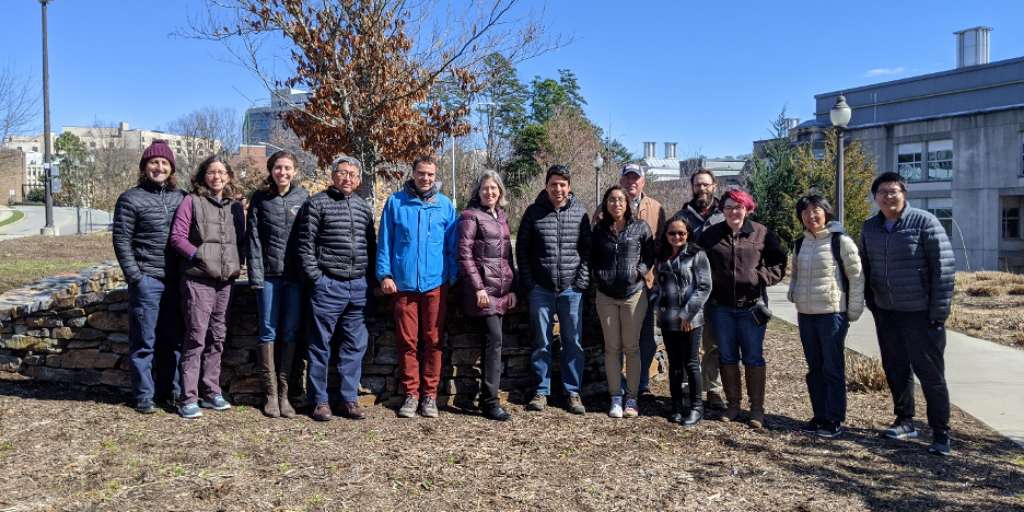
The primary goal of this project was to bring together scientists from across the state whose research focuses on the implications of sea level rise and salt water intrusion on natural ecosystems. The group hosted a workshop in February 2020, which was attended by faculty, postdocs, and graduate students from Duke, North Carolina State University, U.S. Geological Survey, U.S. Fish and Wildlife Service and U.S. Forest Service. Members presented their findings and approaches, identified key knowledge gaps and explored how bringing together different disciplines could lead to productive new approaches.
For many people, the workshop marked the first time meeting new colleagues and hearing about existing datasets and novel applications. This interaction kick-started several collaborative efforts. To date, the group has submitted one grant proposal and is completing a second proposal. Members continue to use a Google Group for sharing ideas for future proposals and collaborations.
Light-based Methods in Neuroscience and Biology
Eva Naumann (lead), Roarke Horstmeyer, Jenna McHenry, John Pearson, Junjie Yao, Stefano Di Talia, Mike Tadross
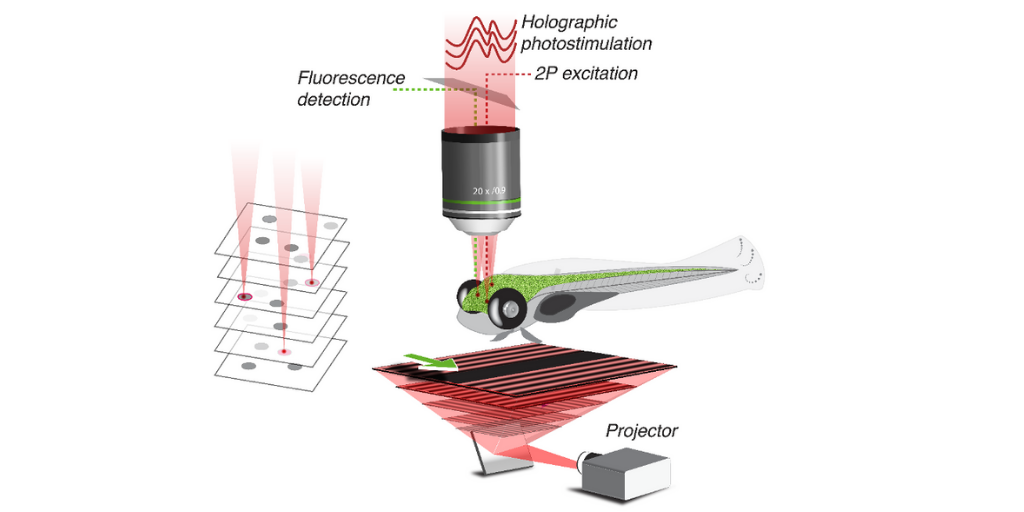
Using all optical neural activity monitoring and manipulating in the translucent zebrafish
This group aimed to cross-pollinate ideas among neuroscientists, engineers and data scientists. Members took part in an in-person kickoff meeting but had to postpone their plans to host seminars and discussions. Virtual meetings helped forge stronger contacts between the group members, and faculty have already initiated three new collaborations.
Entity Resolution with Applications to Public Policy and Business
Victor Bennett (lead), Rebecca Steorts (lead), David Banks, Ines Black, Sharique Hasan, Jerry Reiter
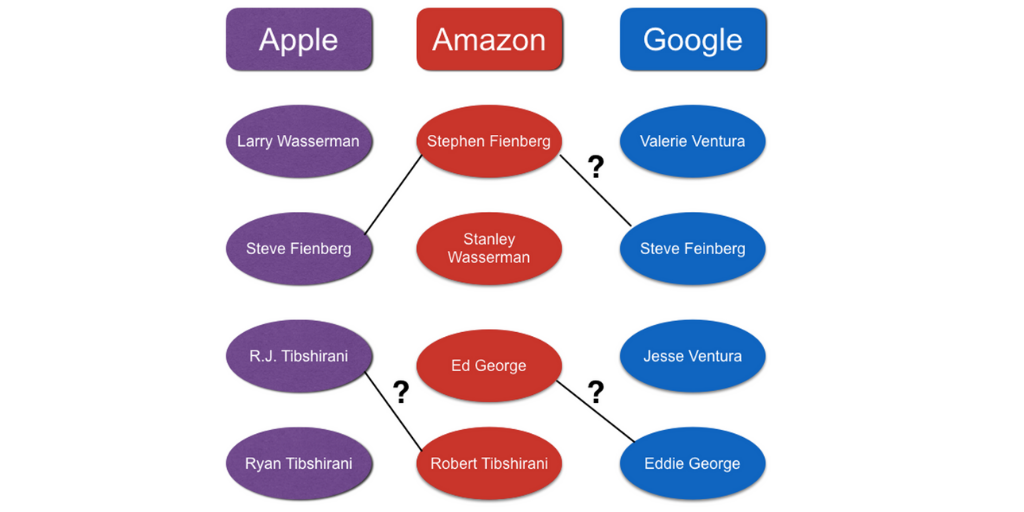
Based on implementation of the novel Entity Resolution algorithm developed by Rebecca Steorts, the group spent time getting the code required to run the process up and running on Duke infrastructure. Master’s student Davis Berlind was able to run the process on some real-world data used to measure automation in the U.S. economy. With advising, he was also able to provide reports comparing the performance of the routine to other routines on these data. To further the collaboration, Victor Bennett took a training course to learn Spark, the multiprocessor parallel processing system on which Steorts’ code was implemented. The performance on the real-world data was less than expected, which was helpful to learn – the group concluded that their collaboration has a lot to contribute by improving the algorithm’s performance on commonly used data in business and public policy research.
Developing a Neuroethics and Theological Studies Network
Patrick Smith (lead), Brett McCarty (lead), Farr Curlin, Warren Kinghorn
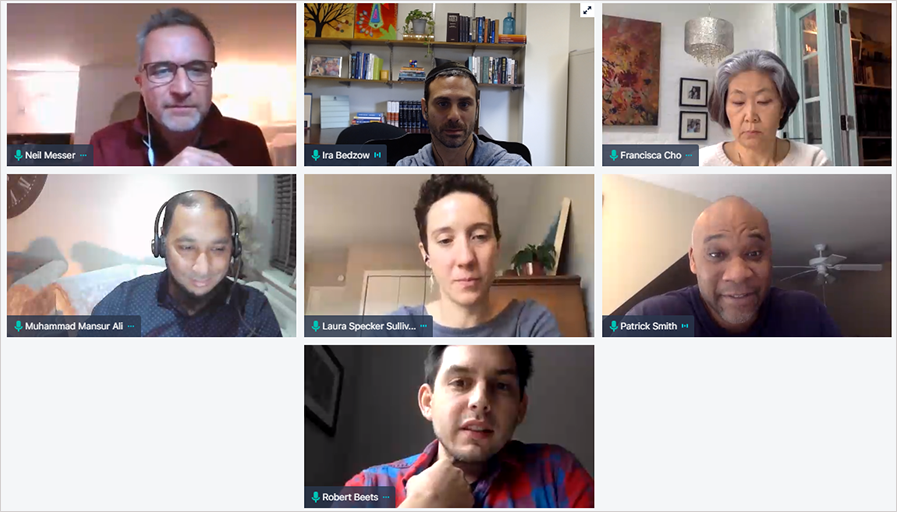
In lieu of an on-campus gathering, this group began by spending a day on Zoom workshopping a coauthored manifesto and ideas for articles and grants. Patrick Smith has been in dialogue with the Duke Institute for Brain Sciences about a series of public conversations they are developing to catalyze work toward a science of social harmony and everyday morality. Brett McCarty engaged with Deborah Jenson to explore ideas. An unexpected fruit of the group’s efforts has been a growing network of national and international collaboration. The grant allowed the group to bring together international scholars working on questions regarding the intersection of theology and neuroethics, which led to Smith’s participation on a panel, “Linking Social Justice and Brain Injury Through Theology,” at the 2020 International Neuroethics Society Annual Meeting. “The grant allowed my research trajectory to take up important discussions at the intersection of theology, neuroethics, and social justice,” said Smith.
Duke SciReg Center: Science in Regulation, Law, and Public Policy
Pate Skene (lead), Michael B. Waitzkin, Jeff Ward, Jonathan Wiener, Mark Borsuk, Kate Konschnik, Lori Bennear, Sarah Rispin Sedlak
This group began with a planning meeting for the core group of faculty. With help from a summer research student, Sophie Mouros, the group conducted a survey of centers and courses at other universities that address the intersection of science and technology with regulation, law and policy. Members then conducted phone interviews with leaders of relevant centers and courses. Learning that most of those offerings are narrowly focused, they concluded that educating Duke faculty and students on the range and depth of the federal regulation of science – and on their ability to participate in that process – could position Duke to play a leadership role in this area.
Opioid Detection Technologies and Their Application to Addressing Various Aspects of the Opioid Crisis
Michael Gehm (lead), Jason Amsden, Nabarun Dasgupta, Jeffrey Glass, Joel Greenberg, Rachel Greenberg, Sonia Grego, Andrew Muzyk
The group was able to hold an in-person kickoff meeting and three information-sharing meetings where the members introduced their connections to the theme. Application-area experts from medicine and public health discussed the detection needs in their areas while the engineering experts discussed the capabilities of their detection modalities. Since a core aspect of this project was to transport scientific equipment to Texas in order to acquire baseline opioid signatures with the group’s detection equipment, and since many faculty were overwhelmed with COVID-related activities, all members agreed that activity should be suspended for the duration of the pandemic.
About Intellectual Community Planning Grants
A key goal of the Together Duke academic strategic plan is to invest in faculty as scholars and leaders of the university’s intellectual communities. To foster collaboration around new and emerging areas of interest, Intellectual Community Planning Grants are available to groups of faculty. Learn more, read about the 2019 recipients and see all Together Duke initiatives.